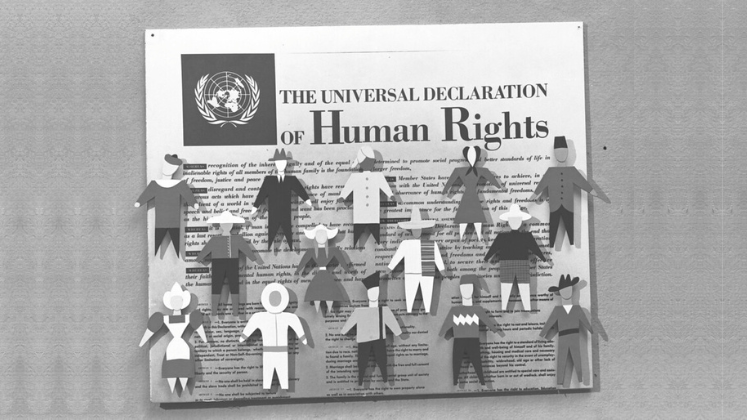Drawing on survey data across a ten year period, Josh Borycz, Alison Specht, and Kevin Crowston, explore how attitudes to open data and more broadly open science have shifted and identify three factors that shape uptake of open science practices.
Open Science is a game changer for researchers and the research community. The UNESCO Open Science recommendations in 2021 suggest that the practice of Open Science is a win-win for researchers as they gain from others’ work while making contributions, which in turn benefits the community, as transparency of conclusions and hence confidence in new knowledge improves.
Over a 10 year period Carol Tenopir of DataONE and her team conducted a global survey of scientists, managers and government workers involved in broad environmental science activities about their willingness to share data and their opinion of the resources available to do so (Tenopir et al., 2011, 2015, 2018, 2020). Comparing the responses over that time shows a general increase in the willingness to share data (and thus engage in Open Science).
a higher willingness to share data corresponded with a decrease in satisfaction with data sharing resources across nations
The most surprising result was that a higher willingness to share data corresponded with a decrease in satisfaction with data sharing resources across nations (e.g., skills, tools, training) (Fig.1). That is, researchers who did not want to share data were satisfied with the available resources, and those that did want to share data were dissatisfied. Researchers appear to only discover that the tools are insufficient when they begin the hard work of engaging in open science practices. This indicates that a cultural shift in the attitudes of researchers needs to precede the development of support and tools for data management.

Fig.1: Correlation between the factors of willingness to share and satisfaction with resources for data sharing for six groups of nations.
The surveys shed further light on the drivers of these changes. Innovation is gradual and is subject to many influences. To understand these influences, we employed a range of theories leading to hypotheses for three important factors A: Individual perceptions; B: social influences, and C: organisational influences (Fig.2). These factors act together to influence opinions and actions towards an innovation, such as Open Science, specifically expressed by attitudes to data sharing and reuse.
For example, we found that over the 10 years, motivations for ‘willingness to share’ were largely individual, such as perceived career benefits, career risk and the effort required to engage in the innovation. Resource satisfaction was largely influenced by organisational matters: the availability of training, mandates, and the accessibility of a safe ‘home’ for the data and information.
Discipline also had an effect. As to be ‘open’ requires data literacy, it is not surprising that informaticists (e.g., computer scientists, database managers, engineers, programmers) were, throughout the study period, most willing to share data. This willingness had a notable rise between 2011 and 2015. The physical and natural scientists showed a consistent improvement with time but were less enthusiastic than the informaticists. Social scientists, however, were comparatively reluctant to share data and did not change that status over the 10 years of the study. Why might this be so?
A simple answer is shown by the ranking of disciplines in their willingness to share data: researchers who rely on computers and machines to do their work (a large proportion of informaticists) or those that use shared resources, such as large data servers, satellites, detectors and boats (many modellers and spatial scientists) are either already in the digital space to make sharing data a reasonable extension of their daily lives or they are mandated to share their data as part of their access to the infrastructure. On the other hand, researchers such as sociologists, some historians and psychologists often work alone, have limited reliance on digital infrastructure, and indeed may face ethical limitations to sharing their data.

Fig.2: Theoretical model. This figure was originally published in the authors’ article “Perceived benefits of open data are improving but scientists lack resources, skills, and rewards” published under a CC by 4.0 License.
Mandated requirements to share data really do work. However, this effect was shown in the surveys as government researchers were consistently far more willing to share data than those in academia or corporations, and this willingness to share increased substantially from 2011 to 2019. Indeed, these same trends held even for researchers whose work was merely funded by the federal government. Researchers working in academia were less willing to share than those in government, but did show significant increases in willingness to share from 2011 to 2015. Researchers in the commercial sector were, unsurprisingly, the least willing to share their data.
The organisational influence of government funding and mandates shifts individual incentives.
Globally, scientists from the USA and Canada and Australia and New Zealand were most willing to share their data, with general increases in that willingness across time. Those in Africa and the Middle East and Asia and southeast Asia were the least willing of all communities and this reluctance did not change throughout the study period.
In conclusion, if we are to reach our open science and open data goals throughout the world, we need to be sensitive to the different conditions and resources around the globe. Our results indicate that government involvement and funding play an important role in improving the attitudes researchers have towards open science practices. The organisational influence of government funding and mandates shifts individual incentives. Researchers then realize that they lack the knowledge, tools, and training they need to properly share data, which can push the social change needed to drastically change the way that science is done for the better.
This post draws on the paper, Borycz, J., Olendorf, R., Specht, A., Grant, B., Crowston, K., Tenopir, C., et al. (2023). Perceived benefits of open data are improving but scientists still lack resources, skills, and rewards, published in Humanities and Social Sciences Communications.
The content generated on this blog is for information purposes only. This Article gives the views and opinions of the authors and does not reflect the views and opinions of the Impact of Social Science blog (the blog), nor of the London School of Economics and Political Science. Please review our comments policy if you have any concerns on posting a comment below.
Image Credit: All images reproduced with permission of the authors.








1 Comments